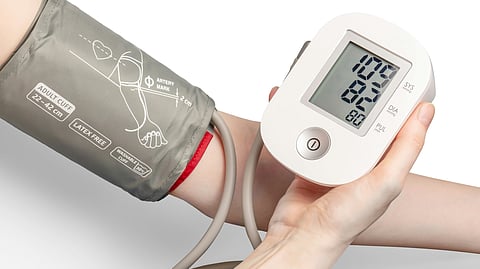

A recent study presented at the ESC Congress 2024 has found that the timing of blood pressure (BP)-lowering medication does not influence the risk of cardiovascular events or mortality. The research, shared during a Hot Line session, revealed that taking these medications in the evening does not reduce the likelihood of heart-related issues or death compared to morning administration.
The study involved a systematic review and meta-analysis of all parallel-group randomized controlled trials (RCTs) that compared the effects of night-time versus morning administration of BP-lowering medications. The analysis focused on trials that included at least one cardiovascular outcome of interest, with a minimum follow-up of 500 patient-years per group and a median follow-up period of at least 12 months. Each trial was evaluated using the Cochrane Risk of Bias 2 tool to ensure reliability.
The primary outcome measured was major adverse cardiovascular events (MACE), a composite endpoint that includes death from any cause, non-fatal heart attacks, non-fatal strokes, and heart failure exacerbation. Secondary outcomes examined individual components of MACE, overall hospitalization rates, and specific safety concerns such as fractures, glaucoma, and cognitive decline.
Five RCTs with a total of 46,606 participants were included in the analysis: BedMed, BedMed-Frail, TIME, Hygia, and MAPEC. While the BedMed, BedMed-Frail, and TIME trials were deemed to have a low risk of bias, some concerns were raised about the Hygia and MAPEC trials, particularly regarding their randomization processes.
The findings indicated that the incidence of MACE was unaffected by whether BP-lowering medications were taken in the evening or morning, with a hazard ratio (HR) of 0.71 (95% confidence interval [CI] 0.43-1.16). When analyzing only the trials with low bias, the HR was 0.94 (95% CI 0.86-1.03), and in the trials with bias concerns, the HR was 0.43 (95% CI 0.26-0.72).
Furthermore, no significant difference was observed in all-cause mortality between evening and morning dosing (HR 0.77; 95% CI 0.51-1.16). Similarly, other secondary outcomes, including fractures, glaucoma events, and cognitive decline, were not influenced by the timing of medication administration.
Professor Turgeon, one of the study's lead researchers, concluded, "The results from this meta-analysis provide conclusive evidence that there is no difference between evening and morning dosing. Patients should take their once-daily BP-lowering medications at whatever time best suits their preferences and circumstances."
Reference:
1. “Timing of dosing of blood-pressure medication makes no difference,” n.d. https://www.escardio.org/The-ESC/Press-Office/Press-releases/Timing-of-dosing-of-blood-pressure-medication-makes-no-difference.
(Input from various sources)
(Rehash/Ankur Deka/MSM)
